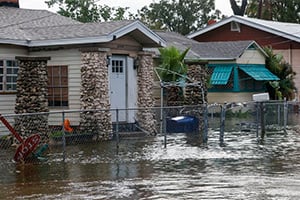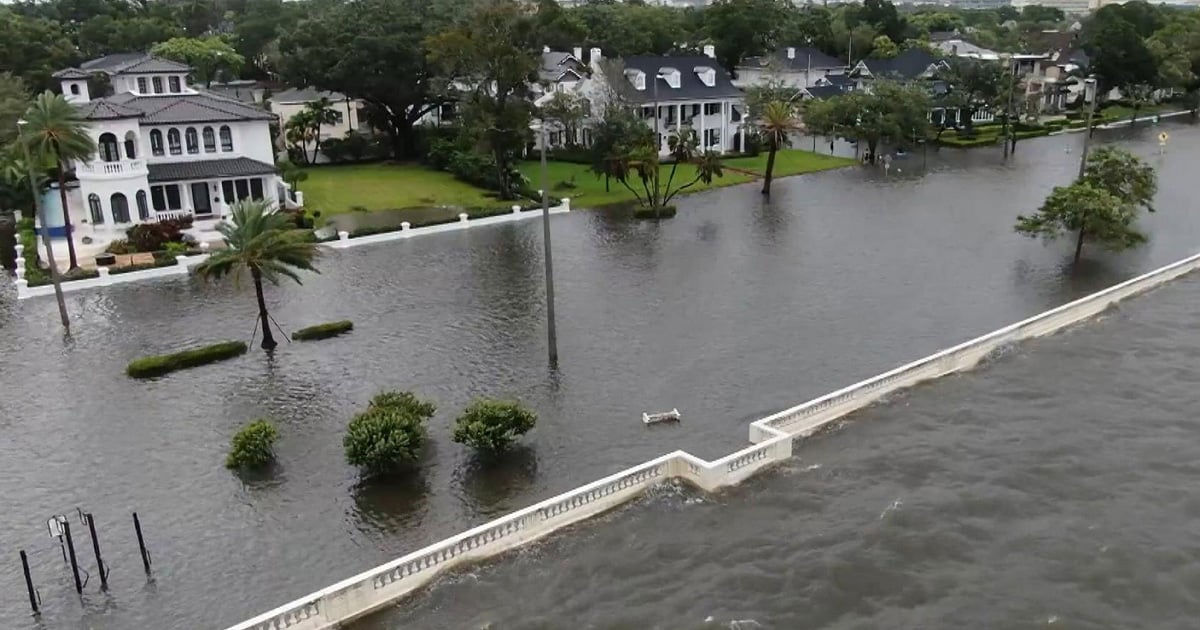Navigating through Hurricane Idalia flood claims can be a daunting process. Remember, flood insurance doesn't fall under your regular homeowners insurance. It's covered under the National Flood Insurance Program (NFIP), which is also offered by private insurers. A standard homeowners policy won't cover flood damage from rising water, but only wind-driven rain and leaks from above. Below are some tips and practices that could help you manage your flood coverage effectively.
Tips for Flood Damage Claims
Apply these tips to your post-flood clean-up and repair plans:
- Take pictures of all damages to the home, as well as pictures of damaged personal property items.
- Also keep a written record of all items damaged or lost, organized by room. Don't forget to note their purchase date, record their cost, and keep the receipts.
- Document the waterline, both inside and outside your property with photographs. If possible, keep a record of how long the water was in the house.
- When assessing replacement costs, include sales tax and delivery/setup fees for every item. Never undervalue your belongings.
- If the officials ask you to discard damaged items, relocate them outside your house if possible, rather than discarding entirely.
- Refer to the Consumer NFIP Handbook and Insurer’s Flood Insurance Manual.
Idalia Post-Flood Clean-Up
Consider prioritizing these steps in the weeks following a property flooding event:
- To prevent mold formation, rid your property of all moist items. Save samples of removed items like carpeting, bedding, furniture, etc.
- Before restoration work begins, obtain written quotes from contractors and have them approved by your insurance provider.
- Keep a written record of all interactions with adjuster and carrier representatives. Aim to document all important voicemails and avoid depending solely on verbal assurances.
- To further prevent mold formation, wash and disinfect all impacted areas such as walls, floors, doors, closets, etc.
- Utilize a portable dehumidifier to thoroughly dry out the property. Your flood policy may cover rental costs. Alternatively, running your air conditioner could help with the drying process.
- If the walls are damaged, document the damaged baseboard, remove it, and drill small holes in the drywall to let trapped moisture escape and let the drying process begin.
- Have a professional check your appliances and hot water heater for possible damage.
Repair Process
Follow these steps to begin repairing your property after a hurricane:
- Claims payments may start coming within 100 days from filing the claim. Nonetheless, repairs may take longer, so be vigilant to ensure the work done is of good quality and fairly priced.
- For major repairs, get a minimum of three estimates. Question contractors if pricing varies drastically.
- Ensure the estimates are clear about the work details and scope of work, have a fixed price, and have a signature.
- Avoid proceeding with repairs based solely on a verbal agreement.
- Ask contractors for valid state licenses and references and then remember to validate them. Natural disasters can attract unreliable contractors looking for quick cash.
- You are required to file a Proof of Loss claim with NFIP within 60 days of the flood unless you are granted an extension. The Proof of Loss is a key requirement, detailing everything you are claiming. Many people fail to meet the NFIP deadline and face claim denial, especially if you have a large claim or find the process confusing. Consider seeking guidance from a claims professional.
What if you don't have flood insurance?
 Does that mean all hope is lost? Not necessarily. Each loss needs to be scrutinized carefully to determine if other insurance coverage, like a standard homeowner’s policy or a business property policy, may apply. Flooding often coincides with other events such as heavy rain, wind, and more. Understanding how your insurance works when damage is caused by a mix of perils — some of which may be included, and others excluded — is crucial.
Does that mean all hope is lost? Not necessarily. Each loss needs to be scrutinized carefully to determine if other insurance coverage, like a standard homeowner’s policy or a business property policy, may apply. Flooding often coincides with other events such as heavy rain, wind, and more. Understanding how your insurance works when damage is caused by a mix of perils — some of which may be included, and others excluded — is crucial.
In such situations with various loss causing factors, you may find yourself wrestling with legal jargon such as "concurrent causation", "anti-concurrent causation", "efficient proximate cause", and other similar terms. Always push your insurers to cover potential damages that may have occurred before the flood.
Bouncing back after a flood might not be easy, but following your insurance policy guidelines efficiently and ensuring your repairs are professionally completed, will prove beneficial in the long run. Keeping a claims activity log, accurate records, documented evidence, receipts, and itemized lists are your best allies in the Flood claim process. If you have questions regarding Hurricane Idalia related flood claims or other water-related property insurance matters, contact us to speak with our team of expert insurance claims attorneys.
%20LOGO%20FINAL.png?width=1089&height=252&name=MLG%20(PREMIUM)%20LOGO%20FINAL.png)
